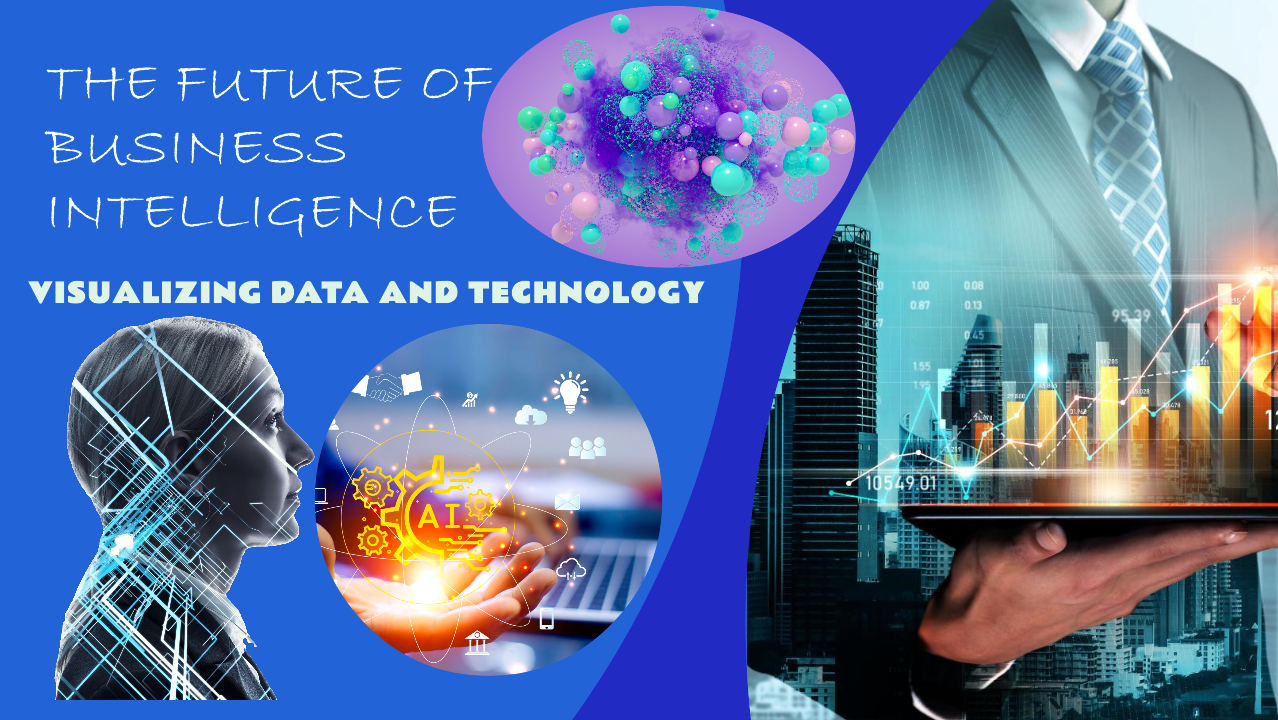As we go towards 2023, navigating the constantly changing business intelligence (BI) landscape will become even more important. In the future Business intelligence will offer more than simply interactive dashboards as real-time data analytics and AI dramatically change the BI industry. A large portion of the change that is about to start will include automated insights, predictive analytics, and much more.
Corporate executives and data scientists must understand the constantly changing environment to succeed in this era of continual change. The latest strategies and fresh trends that are reshaping the business intelligence sector are explained in detail in this extensive book. Whether you are utilizing machine learning or complex analytics techniques, you will discover important information here that can aid in your decision-making. This might put your business leagues ahead of its competitors.
Are you ready to use these next-move techniques and profit from BI’s future, then? Let’s start our transformational adventure.
What is business intelligence?
Business intelligence, expressed simply, is the process of enabling organizations to use data analytics to make better decisions. However, it also consists of a highly developed digital architecture of tools and techniques designed to offer practical insights.
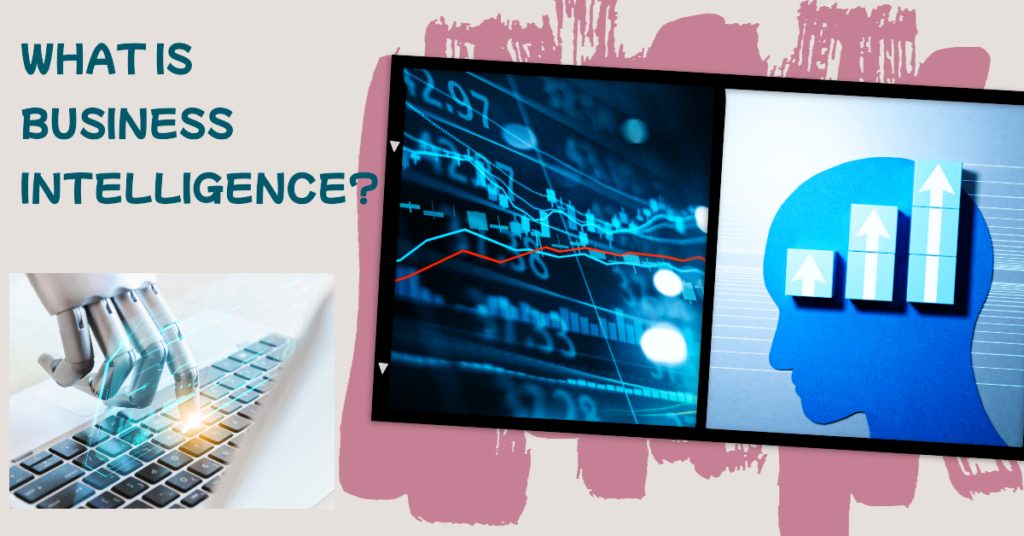
BI solutions process volumes of structured and unstructured data from across departments. Advanced analytics spot trends and patterns within this data to uncover valuable business insights. Reporting dashboards visualize metrics so leaders can track KPIs. Data mining reveals customer preferences to personalize offerings. Predictive modeling forecasts future outcomes.
The core value of BI is turning raw data into strategic business advantage. It shifts organizations away from intuition-only decision-making to become truly data-driven enterprises. In today’s highly competitive landscape, deriving intelligence from data is mission-critical.
Why Business Intelligence is Non-Negotiable for Modern Enterprises
In the age of information, BI is indispensable for business success. Here are some of its key benefits:
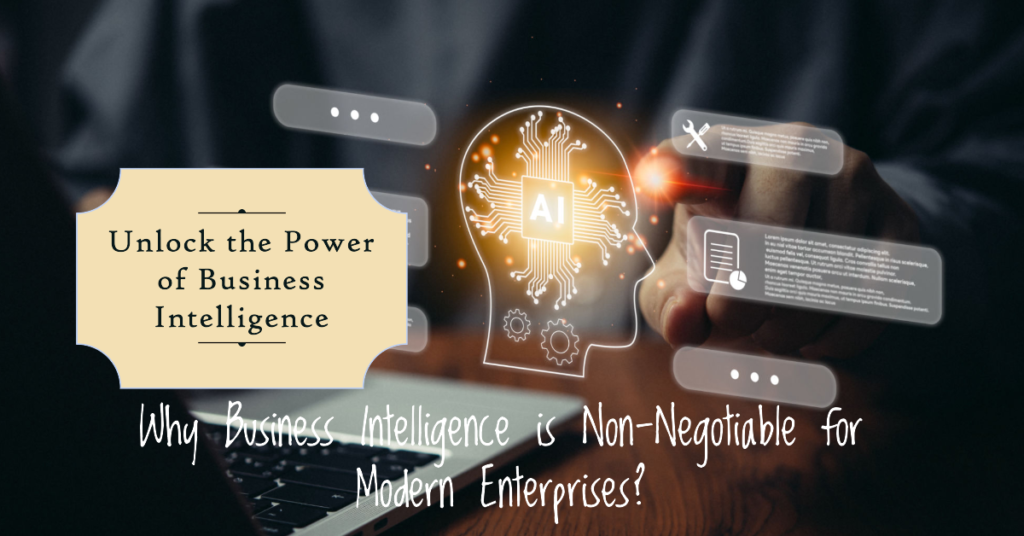
- Accelerated agility and responsiveness by analyzing real-time data such as customer feedback and market trends. Leaders can rapidly adjust strategies.
- Optimized efficiency by identifying redundant costs in operations and supply chains. Resources can be allocated more strategically.
- Uncovering hidden opportunities, whether launching new products, exploring untapped markets, or acquiring new customers. The possibilities are data-driven.
- Added value for customers by personalizing engagements based on preferences and behaviors. Strengthened loyalty improves retention.
- Proactive cybersecurity by detecting data breaches and suspicious activities early. Fraud risks can be mitigated.
Ultimately, BI transitions organizations from reactive to proactive planning. Strategic decision-making improves dramatically when powered by data-derived intelligence rather than assumptions.
The Current State of Business Intelligence: More Than Just Dashboards
BI has undergone a digital transformation – analytics are no longer the domain of IT specialists alone. Self-service BI democratizes data insights across the enterprise. Cloud-based platforms provide secure access anywhere. AI capabilities automate manual analysis for rapid insights.
Integrated BI tools deliver user-friendly analytics to inform decisions company-wide. Mobile apps enable on-the-go monitoring by executives. Natural language processing simplifies data exploration. Predictive modeling provides credible forecasts to minimize risks.
As data proliferation continues, BI solutions help businesses separate signal from noise. Relevant metrics are visualized through interactive reports and dashboards. Data storytelling makes insights easy to digest. Ultimately, contemporary BI empowers different departments to leverage data tailored to their needs for planning and performance improvements.
The Multifaceted Benefits of Business Intelligence
Let’s examine some of the key ways business intelligence solutions empower organizations:
- Identify Growth Opportunities: Spot emerging consumer demands, high-potential geographic markets, and gaps competitors have left unfilled.
- Enable Data-Driven Decisions: Analyze insights rather than relying on intuition alone across areas like new hiring, product launches, marketing campaigns, etc.
- Enhance Customer Experiences: Leverage buyer preferences and behaviors to tailor engagements and offers. Strengthen loyalty.
- Pinpoint Cost Savings: Find redundancies in workflows, supply chains, and other operations to optimize spending.
- Future Forecasting: Predict results and scenarios through modeling to minimize risks for long-term strategy.
- Increase Enterprise Agility: Monitor real-time performance to rapidly respond to issues and external disruptions.
Using an organization’s collective knowledge to generate tangible financial advantage is the main benefit. With BI, you can see both the large picture and the details, giving you the knowledge you need to compete and advance faster.
The Pivotal Role of AI and Machine Learning in Business Intelligence
Artificial intelligence has emerged as a game-changing force multiplier for modern business intelligence. Here’s an overview of key ways AI is transforming BI:
- Predictive Modeling – ML algorithms analyze historical data to deliver credible forecasts on metrics like sales, churn risk, demand, etc. This enables proactive planning.
- Automated Data Analysis – Natural language processing, image recognition, and other AI techniques can draw insights faster. This frees up human analysts for higher-value work.
- Anomaly Detection – Unusual spikes, drops, or patterns in data can signal fraud or cyber threats. AI spots these needles in the haystack early.
- Personalization – AI tools study customer preferences and behaviors to tailor engagements and product recommendations for each individual. Strengthens loyalty.
- Conversational BI – Chatbots and virtual assistants allow conversation-style access to reports and analytics using natural language queries. Democratizes insights.
In essence, AI augments how organizations extract and apply intelligence from data. Tasks that previously required IT expertise can now be handled autonomously in real time. This amplifies the power of data analytics while making it more accessible. The future of BI is undoubtedly AI-driven. The integration of these technologies into BI solutions is not an option but a necessity for businesses aiming to stay ahead in the competitive market.
Real-Time Analytics and Its Importance
Why Real-Time Analytics is Non-Negotiable for Informed Decisions
- Immediate Insights: Real-time analytics allows for the instantaneous interpretation of real-time data, enabling business leaders to make informed decisions swiftly.
- Adaptive Strategies: With real-time analytics, companies can adapt their strategies on the fly, ensuring they are always aligned with market trends and consumer behaviors.
Real-Time Data: The Competitive Edge
- Keep Ahead: Accessing real-time data gives firms a considerable competitive edge, enabling them to outmaneuver rivals by responding to market developments.
- Capture Opportunities: Real-time data enables businesses to seize opportunities the moment they arise, rather than reacting too late and missing out.
Self-Service BI and User Adoption
The Trend Toward Self-Service BI Solutions
- Empowerment: Self-service BI is democratizing data analytics, allowing business users to generate insights without the need for IT intervention.
- Future-proof: As 2023 draws closer, self-service BI solutions are anticipated to experience a meteoric rise in popularity, becoming a pillar of the industry.
How Self-Service BI Catalyzes Wider Adoption
- User-Friendly: The intuitive nature of self-service BI tools encourages wider adoption among business users, fostering a data-driven culture.
- Strategic Advantage: When more employees use BI tools, the quality of company choices and strategies improves, offering businesses an advantage in the market.
Businesses are not simply keeping up with technology improvements when they include self-service BI and real-time analytics in their operations; they are also staying ahead of the curve. These important themes are influencing BI’s future and making it an essential tool for contemporary enterprises.
Challenges and Considerations for Business Intelligence
While BI delivers immense value, there are challenges to address:
- Data Quality: Inaccurate or incomplete data leads to unreliable insights. Steps for data governance and master data management are key.
- Resource Allocation: Maintaining data quality is resource-intensive, affecting the ROI of your BI systems.
- Data Vulnerability: With the increasing volume of raw data, the risk of data breaches and unauthorized access escalates.
- Changing Requirements: As business needs evolve, BI systems must adapt through flexibility and modularity.
- Security Risks: Protecting data integrity and privacy is imperative, especially with growing cyber threats. Comprehensive measures must be implemented.
- User Adoption: Lack of training and change management hampers utilization. Executive buy-in and promoting data literacy are essential.
- Regulatory Compliance: Adhering to data protection laws is a significant challenge, especially for businesses operating globally.
The total cost of ownership, scalability requirements, usability, data visualization capabilities, flexibility for self-service analytics, and security features are things to think about while investigating new BI solutions. Procurement choices should take into account both present issues and potential future needs.
The Horizon of Business Intelligence: Future Trends to Watch in 2023
Augmented Analytics: The Next Frontier
- Automated Analysis: Augmented analytics leverage AI and machine learning to automate data analysis, simplifying the extraction of insights.
- User Engagement: This trend is set to increase user adoption, making analytics more accessible to business users.
The Cloud-Based BI Revolution
- Cost Benefits: Cloud-based BI eliminates the need for on-premise infrastructure, reducing costs.
- Remote Accessibility: It allows for remote access to analytics platforms, facilitating team collaboration.
Explainable AI: The Transparency Trailblazer
- Understanding AI: Explainable AI provides a clear rationale behind AI’s predictive analytics, increasing trust among business leaders.
- Ethical Considerations: This trend is vital for ensuring that AI and ML algorithms are unbiased and ethical.
- Advanced Analytics: Sophisticated analytics techniques will enable businesses to make better decisions.
- Real-Time Insights: The demand for real-time analytics will surge, helping businesses stay ahead of the competition.
BI will stop being a specialized field and start being even more naturally intuitive and essential to company operations as these capabilities develop. Real-time insights, automation, and a closer connection between data and choices will characterize the next generation of business intelligence. Organizations should keep ahead of the curve and make sure that their BI strategy reflects new developments.
The Top 5 Business Intelligence Trends for the Next 5 Years
Business intelligence innovation is still happening at a rapid rate. Here are 5 significant trends that will impact BI during the following 5 years:
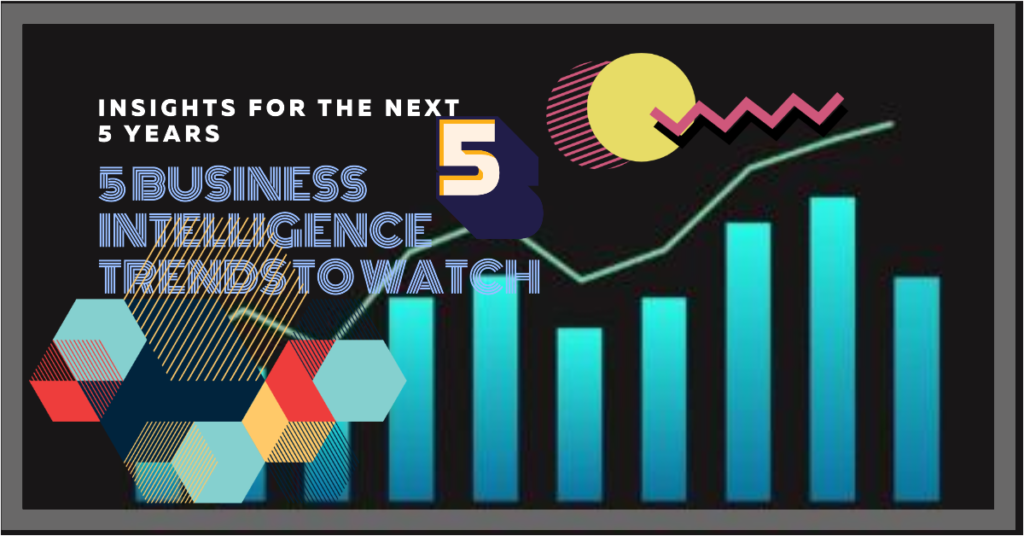
- Cloud BI: Cloud platforms will become the norm for delivering insights as a service. Scalable, flexible, and cost-effective.
- Artificial Intelligence: From predictive modeling to natural language querying, AI will automate more processes and provide personalized insights.
- Real-Time Analytics: With technologies like 5G and IoT, analyzing data in real-time for rapid decisions will be key.
- Data Democratization: Self-service analytics will empower users of all skill levels to tap into data, reducing reliance on data specialists.
- Actionable Insights: The focus will shift from just collecting data to extracting and applying actionable intelligence to optimize decisions and performance.
As these technologies mature, the next wave of business intelligence promises to be even more responsive, intuitive, and tightly woven into business operations. Organizations will need strategic foresight to prepare their analytics infrastructure and workforce for the future. The ability to make decisions based on data will provide one with a persistent competitive edge.
Frequently Asked Questions – FAQs
Cutting-edge Business Intelligence trends encompass AI and machine learning fusion. Streamlining accurate data-driven decision-making is the goal of real-time analytics and augmented analytics.
AI is revolutionizing BI through predictive models, spotting insights faster, and generating reports – more automation means less manual work.
It’s using machine learning to systematize analytics – think automated forecasting, natural language queries, and insight generation.
AI will take BI to new heights through automation – real-time recommendations, predictive modeling, conversational AI, and hyper-personalization.
Strategic planning is key – invest in AI-driven BI tools, upskill staff on new tech, and stay aligned with emerging capabilities.
Democratized BI will level the playing field – easy self-service analytics gives small companies the same advantages as giants.
Leading BI platforms incorporate robust security – encryption, access controls, and authentication safeguarding sensitive data.
Per research, AI-powered BI can net big cost savings and productivity gains, like over $2 million over 3 years for large firms.
Stay updated on BI innovations, invest in skills development, and ensure your BI strategy evolves with emerging tech like AI and cloud.
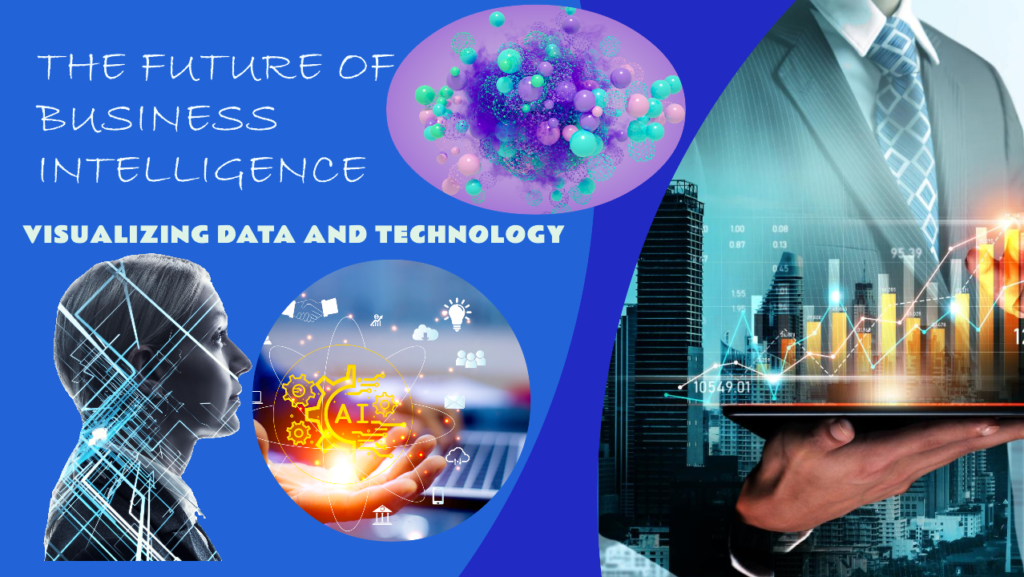
Wrapping Up
Make no mistake – business intelligence stands at a pivotal turning point. AI and machine learning are taking BI capabilities to unprecedented heights. Real-time data analysis is enabling insight-speed decision-making. Self-service analytics is driving BI adoption across organizations. Cloud BI provides flexible, scalable access to intelligence.
In 2023 and the years to come, augmented analytics and cloud-based BI are expected to completely change how corporate decisions are made by enabling previously unheard-of levels of data analysis.
For businesses aiming to stay ahead of the competition, embracing these emerging trends is not optional—it’s essential. For those who are ready to adapt, the future is promising, data-centric, and filled with opportunity. Don’t just be a spectator; be a trailblazer in this data-driven transformation. It’s time to take action since business intelligence’s future is today.

